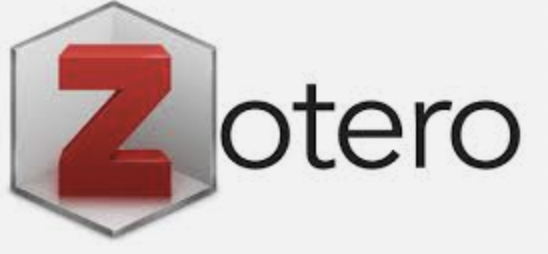KEMAMPUAN KOMUNIKASI KETERAMPILAN DASAR MENGAJAR CALON GURU PROFESIONAL PADA PROGRAM PPG PRAJABATAN
DOI:
https://doi.org/10.21067/jppi.v17i2.9134Keywords:
komunikasi interpersonal, keterampilan dasar mengajar, guru, guru profesionalAbstract
This study aims to determine the ability of communication in the basic skills of teaching professional teacher candidates through the PPG Prajabatan program in the field of social studies education at Semarang State University. The method used in this research is descriptive quantitative, data analysis is done by reducing data, presenting data, to draw conclusions. The research data shows the communication skills of PPG Prajabatan participants in the components of opening lessons, managing classes, and closing classes. In the ability to open the class still needs to be improved again because there are still participants who get a sufficient assessment. In the ability to manage the class from all indicators ranging from the ability to ask questions, listen with empathy, and respond to various individual needs, overcome inappropriate behavior, make variations in learning, provide constructive feedback most of them have received very good and good ratings. In the ability to close the class there are still seven participants who get good grades.
References
Azis, A. (2016). Pengaruh Keterampilan Membuka Pembelajaran Terhadap Motivasi Siswa dalam Belajar Bahasa Indonesia Sekolah Dasar. Journal of EST, 2, 65–73.
Brekelmans, M., Sleegers, P., & Fraser, B. (2000). Teaching for Active Learning. In New Learning (pp.227–242). Springer Netherlands. https://doi.org/10.1007/0-306-47614-2_12
Burleson, B. R. (2012). Communication Yearbook 18 (B. R. Burleson, Ed.; Vol. 18th). Routledge.
DeVito, J. A. (2016). The Interpersonal Communication Book (Vol. 14th).
Febriana, R. (2019). Kompetensi Guru. Bumi Aksara.
Gross Davis, B. (2009). Tools for Teaching second edition (2nd ed., Vol. 2). Jossey-Bass.
Hattie, J., & Timperley, H. (2007). The power of feedback. In Review of Educational Research (Vol. 77, Issue 1, pp. 81–112). SAGE Publications Inc. https://doi.org/10.3102/003465430298487
Hidi, S., & Ann Renninger, K. (2006). The four-phase model of interest development. Educational Psychologist, 41(2), 111–127. https://doi.org/10.1207/s15326985ep4102_4
Houser, M. L., & Hosek, A. M. (2018). Handbook of Instructional Communication (M. L. Houser & A. M. Hosek, Eds.; 2nd ed.). Routledge.
Jones, D. N. (2016). The Dark Side Of Personality (V. Zeigler-Hill & D. K. Marcus, Eds.). American Psychological Association. https://doi.org/http://dx.doi.org/10.1037/14854-000
Martono, E. P., Solihatun, S., & Prasetyaningtyas, W. E. (2021). Pengaruh Keterampilan Sosial Terhadap Kepercayaan Diri Siswa Terisolir. Orien: Cakrawala Ilmiah Mahasiswa, 1(2), 167–174.https://doi.org/10.30998/ocim.v1i2.5262
National Education Ascociation. (2018). Preparing 21st Century Students for a Global Society Great Public Schools for Every Student. https://dl.icdst.org/pdfs/files3/0d3e72e9b873e0ef2ed780bf53a347b4.pdf
Pontoh, W. P. (2013). Peranan Komunikasi Interpersonal Guru dalam Meningkatkan Pengetahuan Anak. Journal Acta Diurna, 1, 1–11. Salija, K., Muhayyang, M., & Rasyid, M. A. (n.d.). Interpersonal Communication: A Social Harmony
Approach Second Edition.
Soodak, L. C., & McCarthy, M. R. (2006). Handbook Of Classroom Management Research, Practice, and Contemporary Issues (C. M. Evertson & C. S. Weinstein, Eds.). Routledge.
Sprague, J. R., Jolivette, K., & Nelson, C. M. (2015). Handbook Of Evidence-Based Practices For Emotional And Behavioral Disorders (H. M. Walker & F. M. Gresham, Eds.). The Guilford Press.
Tomlinson, C. A. (2001). How to differentiate instruction in mixed-ability classrooms. Association for Supervision and Curriculum Development.
Triola, M. F. (2018). Elementary Statistics (13th ed., Vol. 13th). Pearson. UNDP. (2023). Human Development Index and Components 2021 - 2022.
Wahyuni, A. (2018). The Power of Verbal and Nonverbal Communication in Learning.
Waitoller, F. R., & Thorius, K. A. K. (2016). Cross-pollinating culturally sustaining pedagogy and universal design for learning: Toward an inclusive pedagogy that accounts for dis/ability. In Harvard Educational Review (Vol. 86, Issue 3, pp. 366–389). Harvard University. https://doi.org/10.17763/1943-5045-86.3.366
Wang, M. Te, & Holcombe, R. (2010). Adolescents’ perceptions of school environment, engagement,and academic achievement in middle school. American Educational Research Journal, 47(3), 633–662. https://doi.org/10.3102/0002831209361209
Zein, M. (n.d.). PERAN GURU DALAM PENGEMBANGAN PEMBELAJARAN.
Zlatid, L., Bjekid, D., Marinkovid, S., & Bojovid, M. (2014). Development of Teacher Communication Competence. Procedia - Social and Behavioral Sciences, 116, 606–610.https://doi.org/10.1016/j.sbspro.2014.01.265











